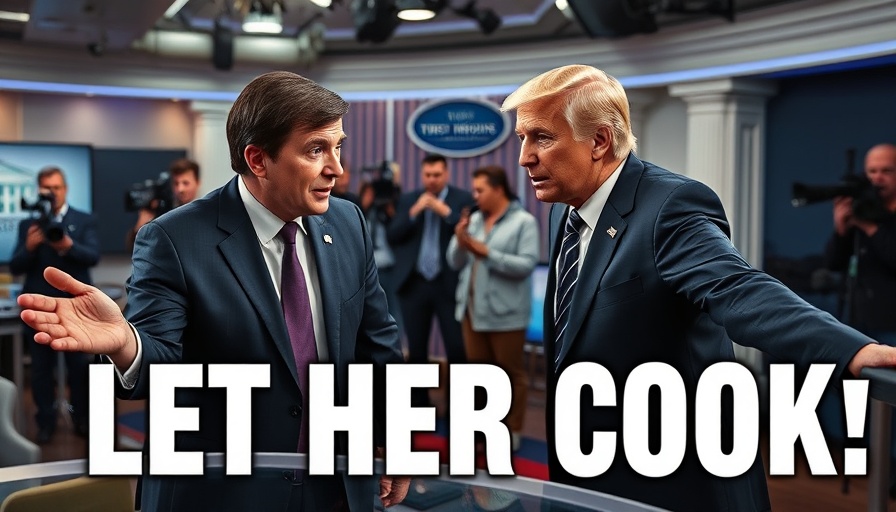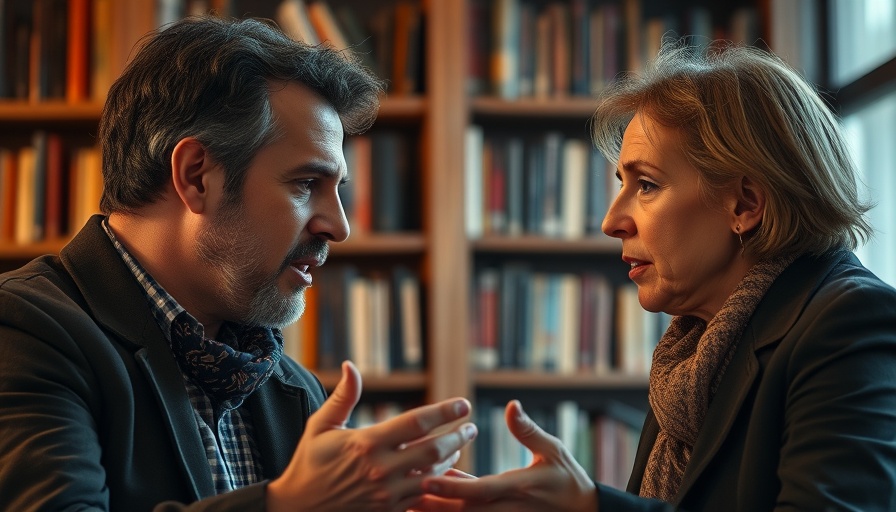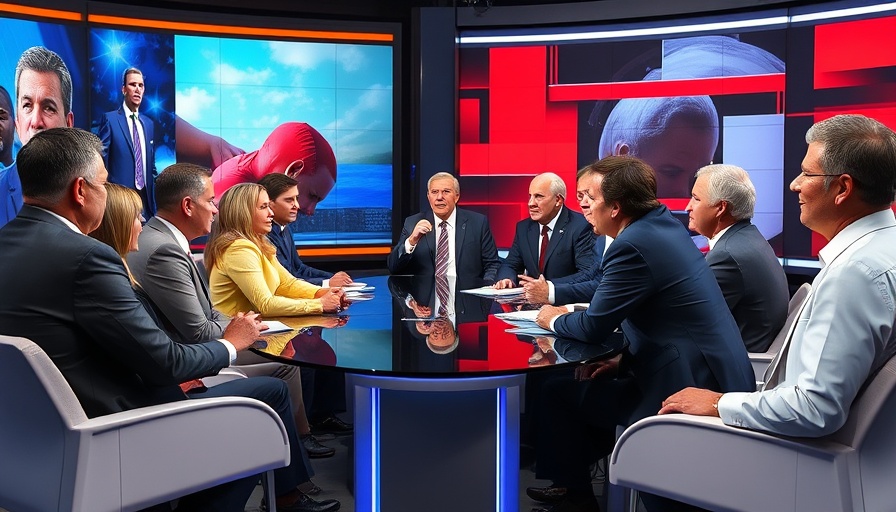
The Heated Exchange: Immigration and Terrorism in Focus
In a recent clip that has ignited discussions across conservative platforms, Caroline Leavitt passionately responded to Fox News correspondent Peter Doocy’s inquiries about the deportation of designated foreign terrorists. With a fiery tone, she underscored the Trump administration’s intention to enforce stricter immigration policies, particularly focusing on groups like the TDA gang, which she labeled as "heinous monsters" posing a threat to national security. Leavitt argued that these individuals should be held accountable for their actions, a sentiment that resonates deeply in the current political climate.
In 'Karoline Leavitt WENT OFF when Peter Doocy asked THIS question', the discussion dives into immigration and terrorism, exploring key insights that sparked deeper analysis on our end.
Understanding the Context: Why Terrorists Matter
The designation of the TDA as a foreign terrorist organization, sanctioned by a presidential proclamation in February 2025, raises significant legal and moral questions surrounding immigration and national security. With bipartisan agreement identifying certain groups as threats, the discussion pivots toward how best to address these issues pragmatically and humanely. The rhetoric around these terrorist designations is not merely political—it affects real lives and national safety. By examining this context, we see how deportation policies may serve not only as a deterrent but also as a protection mechanism for American citizens.
Counterarguments: Human Rights vs. National Security
The debate surrounding immigration, especially concerning suspected terrorists, often brings forth counterarguments that emphasize human rights. Critics argue that deporting individuals without thorough judicial reviews ignores issues of asylum and refugee protections. They raise concerns about the ethics of mass deportations, which can lead to families being separated and individuals being sent back to perilous situations. Understanding these perspectives enriches the conversation, revealing the multifaceted nature of immigration policy and its direct impact on America’s core values.
A Look at International Relations: France and the Statue of Liberty Debate
Leavitt's response also touched on a recent claim from a French politician about wanting the Statue of Liberty returned, framing it within the larger context of current U.S.-France relations. Her retort, reminding France of the historical alliances and services provided by the United States, underscores a sentiment among many patriots who see the need to reaffirm America’s strength on the global stage. The Statue of Liberty, a symbol of hope and freedom, becomes a focal point in reaffirming national pride amidst international scrutiny.
Immigration Policies and Their Impact on American Society
The conversations around immigration policies, refugees, and national security intertwine with America’s cultural identity. As reports surface suggesting an increase in crime rates linked to poor immigration enforcement in urban areas, supporters of stricter measures argue for policies that prioritize American safety over leniency. This perspective aligns with the emotions and fears of many working-class Americans who feel neglected by political elites. The notion that unchecked immigration leads to societal decay resonates deeply within the MAGA base, shaping perceptions around policy decisions.
Future Predictions: What Lies Ahead for U.S. Immigration Policy
As the 2024 elections approach, immigration policy is poised to become a critical battleground. The Trump-era stance on deportations may gain renewed traction among voters seeking safety and American sovereignty. Analysts suggest that candidates who fail to address these concerns may find themselves sidelined in debates. Looking forward, it's crucial to consider potential reforms that could balance national security interests with humane treatment of migrants, ensuring that the American identity is preserved.
Making Informed Decisions: What You Can Do
For concerned citizens eager to engage in these discussions, staying informed is essential. Attend town hall meetings, voice concerns about local policies, and actively participate in discourse around immigration reform. Connect with local representatives, share insights during community forums, and advocate for changes that reflect both security needs and humanitarian principles. Engaging at the grassroots level fosters a sense of agency, ensuring that the collective voice of patriots like you does not go unheard.
In summary, the exchange between Peter Doocy and Caroline Leavitt reveals critical insights regarding immigration, national security, and international relations. With debates intensifying around these topics, the actions we take now will shape the future of American policy. Whether you agree with Leavitt’s assertive stance or hold a more moderate view, the conversation is vital for understanding the path ahead for America’s immigration policies. Monitor these developments, as they will set the framework for vital legislative discussions in the coming years.
As you consider these issues, remember the importance of participating in political discourse, advocating for your beliefs, and holding your representatives accountable. Your voice matters—engage, influence, and make a difference.
 Add Row
Add Row  Add
Add 




 Add Row
Add Row  Add
Add 

Write A Comment